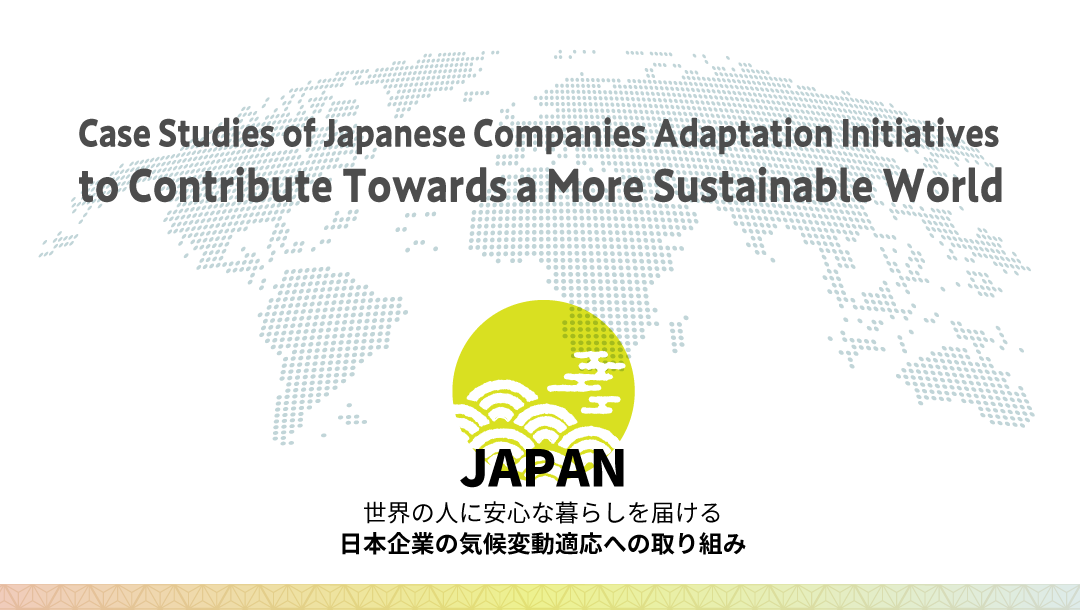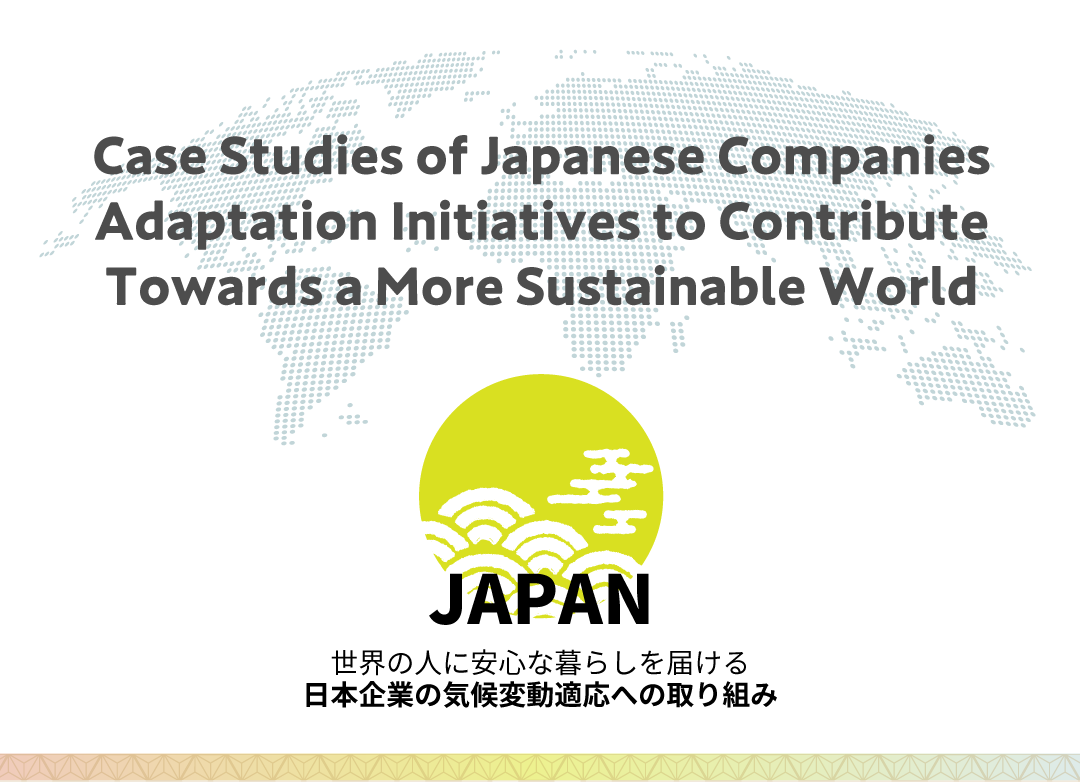

Japanese Innovation Arising from Climate Change Risks
Countries vulnerable to climate change have already suffered severe losses and damage in many sectors. However, funding for adaptation to climate change remains scarce and under-distributed within these countries. Therefore, the financial and development capacity of the private sector is expected.
This page showcases examples of leading 'adaptive businesses' in Japan that take climate change action, use climate change as a business opportunity, and offer products and services in Japan and other countries by mitigating the impacts of climate change.
Agriculture, Forestry, and Fisheries

Crops Withering, Price Rising
Climate change is already significantly impacting the world's food supply. Due to increased extreme weather events such as exceptionally high temperatures and heavy rainfall, crops previously harvested on land can no longer grow in the same area. In the fisheries industry, rising sea temperatures are reducing the fish size and driving popular local fish to extinction. In countries strongly affected by climate change in Africa and South-East Asia, rising sea levels are causing salinization of groundwater, leading to soil degradation. Furthermore, frequent extreme weather events are causing severe damage to crops inducing serious food shortages in certain areas. In Japan, wheat prices have also increased, partly due to the global decline in production incurred by drought.
Water Environment and Water Resources

Protecting Water for Life
Water supports our lives in agriculture, industry, and households. Extreme weather events due to climate change are predicted to reduce precipitation and annual river flows, particularly in the Mediterranean, the Middle East, Southern Africa, and the American Midwest. Additionally, water shortages have also been observed in other regions. Severe droughts in many parts of the world make stable water supplies difficult in an increasing number of regions.
Moreover, rising water temperatures due to global warming are causing changes in water quality, such as harmful algal blooms and red tides. In South-East Asian and African countries, water quality fluctuations due to natural disasters have also been observed. Furthermore, the rapid population growth has not been able to keep up with the development of water supply systems, forcing many to rely on untreated well water. Although water is our lifeline, from drinkable water to industries, the shortage of water resources in many parts of the world has led to 'water conflicts.'
Biodiversity

Burning Forests, Losing Biodiversity
Rising temperatures caused by climate change are threatening biodiversity and ecosystem services. In recent years, climate change has led to large-scale wildfires in many parts of the world, causing losses to forest ecosystems. In the past few years, large wildfires have occurred in Australia and the state of California in the US. In addition, heat waves that hit Europe in 2022 burned valuable forests in Europe, including Portugal, Spain, and France.
Rapid changes in ecosystems induced by climate change directly affect human societies. Without taking adaptive and mitigative action, it can deteriorate food production and cause the loss of plants and animals, which are also valuable medicinal resources.
Natural Disasters

People Displaced by Natural Disasters
Natural disasters such as landslides and floods are inflating due to increased heavy rainfall and powerful typhoons caused by climate change. For example, Pakistan was recently struck by floods that submerged one-third of the country. In Africa, natural disasters are also becoming more severe every year. Save the Children reported that at least 100,000 people have been displaced in the Republic of Burundi in East Africa in recent years due to repeated flooding and other disasters. Many developing countries vulnerable to natural disasters caused by climate change are still not equipped to cope with the effects and experience heavy losses and damages.
Health

Link between Climate Change and Infectious Diseases: The Impact of Rising Temperatures on Our Health
The summer of 2022 reported record-breaking heat waves in many parts of the world. According to WHO, at least 1,700 deaths were reported in Spain and Portugal due to high temperatures. Japan also reported an increase in the number of people who suffered from heat stroke.
There are growing concerns about the spread of infectious diseases in areas that were not previously evident due to insects that mediate infectious diseases also adapting to climate change.

 Transforming Household and Agricultural Waste into Compost
Transforming Household and Agricultural Waste into Compost A Farming Method No Longer Reliant on Soil-Polymer Film Farming
A Farming Method No Longer Reliant on Soil-Polymer Film Farming Small Water Purification Systems Make Village Life More Prosperous
Small Water Purification Systems Make Village Life More Prosperous Water to Fight Fires? No, Soap: A Soap Digestant that Protects Forests
Water to Fight Fires? No, Soap: A Soap Digestant that Protects Forests 'Weather Index Insurance' for Faster Payments to Protect Farmers
'Weather Index Insurance' for Faster Payments to Protect Farmers Quantifying Flood Risk to Support Climate Resiliency
Quantifying Flood Risk to Support Climate Resiliency Cool Work Clothes are Essential for Hot Workplaces! "Breathable Chemical Protective Clothing" is Now Available
Cool Work Clothes are Essential for Hot Workplaces! "Breathable Chemical Protective Clothing" is Now Available Protecting Human Life from Drug-Resistant Bacteria
Protecting Human Life from Drug-Resistant Bacteria Using Mesh Screen Door Technology to Help People Suffering from Malaria
Using Mesh Screen Door Technology to Help People Suffering from Malaria

